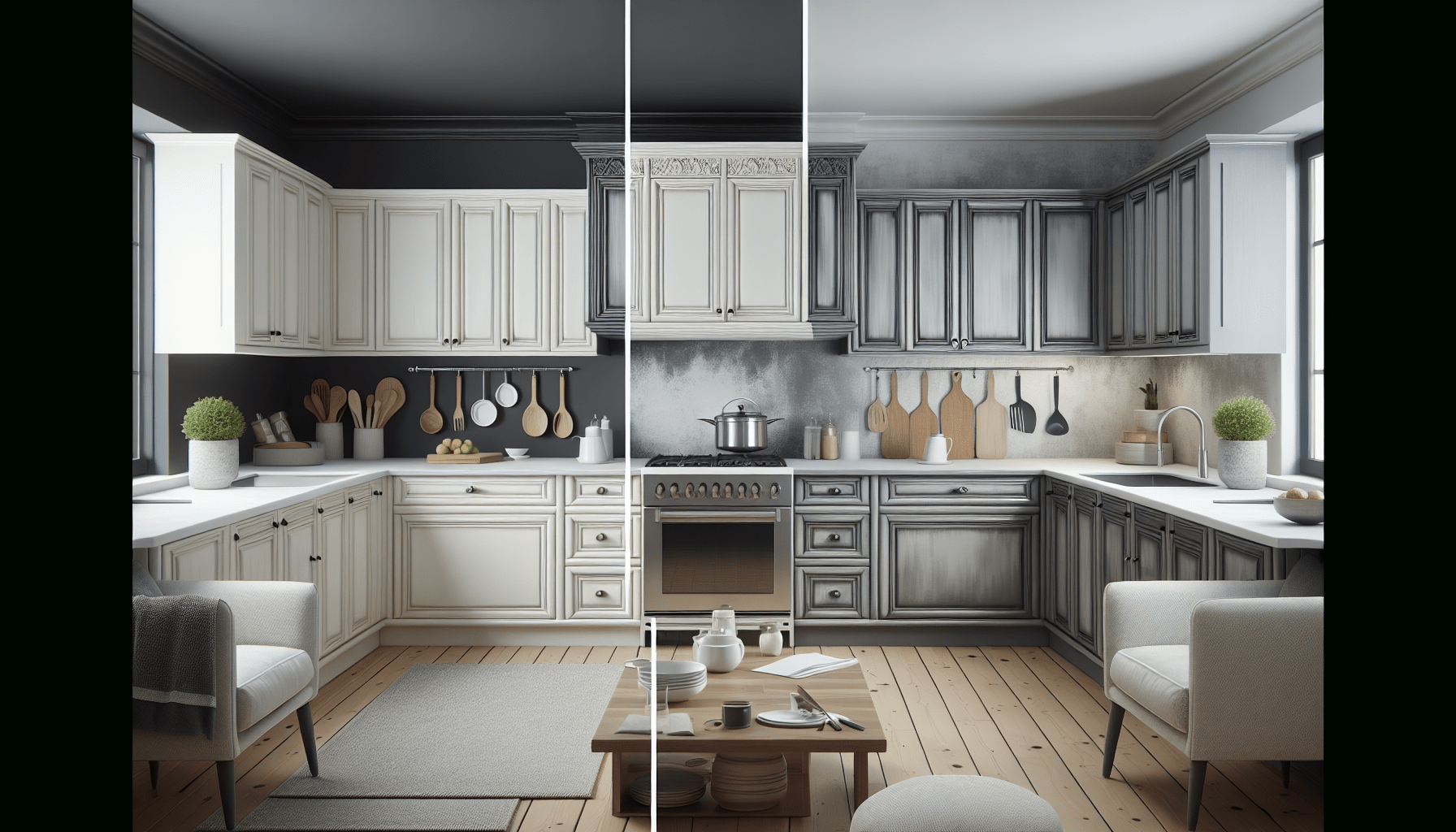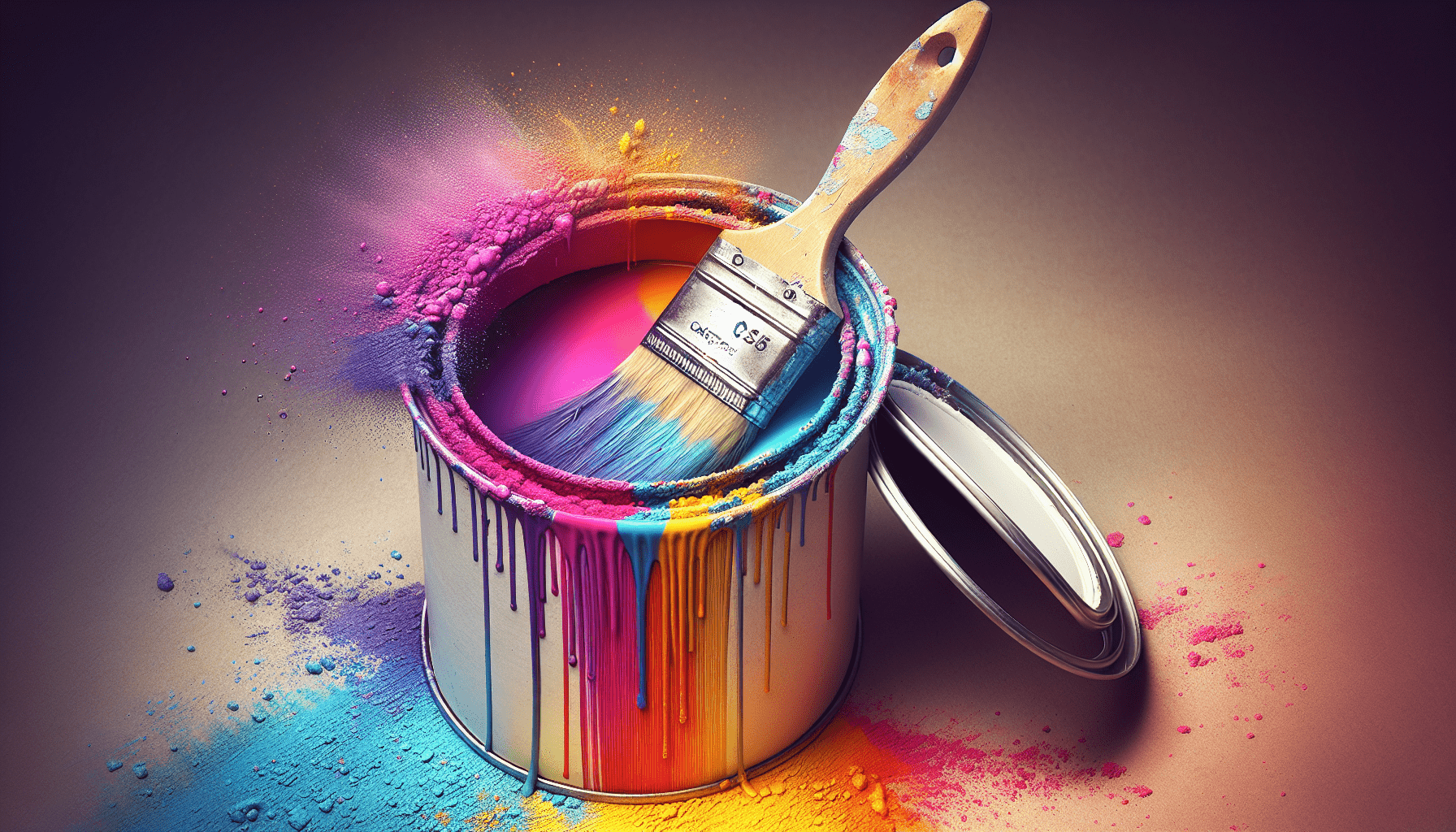When it comes to painting with chalk paint, choosing the right brush can make all the difference in achieving a smooth and flawless finish. With the multitude of brush options available, selecting the appropriate one can be overwhelming. Understanding the specific qualities and features of brushes designed for chalk paint will guide you in making an informed decision. From bristles to handle design, this article explores the essential factors to consider when determining the perfect brush for your chalk paint projects.
Choosing the Right Brush for Chalk Paint
When it comes to painting with chalk paint, choosing the right brush is essential. The nature of chalk paint requires a specific type of brush to achieve the desired results. Using the wrong brush can lead to uneven finishes, visible brush strokes, and a frustrating painting experience. In this article, we will discuss the importance of understanding the nature of chalk paint and using the right brush, as well as factors to consider when choosing a brush. We will also explore different types of brushes available for chalk paint and their advantages and disadvantages.
Understanding the Nature of Chalk Paint
Before delving into the world of brushes, it is important to grasp the nature of chalk paint. Chalk paint is composed of water, calcium carbonate, talc, and pigment, giving it a smooth, chalky finish. It is known for its ability to adhere to various surfaces without the need for sanding or priming. The unique characteristics of chalk paint make it a popular choice for those looking to transform furniture and other household items.
Importance of Using the Right Brush
Using the right brush when working with chalk paint is crucial for several reasons. Firstly, it ensures that you achieve the desired results. The right brush will provide a smooth and even finish, enhancing the overall look of your painted piece. Secondly, using the right brush minimizes the appearance of brush strokes, creating a professional and seamless appearance. Lastly, choosing the right brush enhances the efficiency of paint application, allowing you to complete your project in a timely manner.

Factors to Consider when Choosing a Brush
Several factors should be taken into consideration when selecting a brush for chalk paint. Firstly, consider the bristle material. Natural bristle brushes and synthetic bristle brushes are commonly used for chalk paint, each with their own advantages and disadvantages. The shape and size of the brush are also important factors to consider, as they will determine the precision and coverage you can achieve. The handle design and comfort are crucial for a comfortable painting experience, particularly for larger projects. Additionally, durability and quality should be taken into account to ensure the brush will last for multiple projects. Finally, the ease of cleaning the brush is a practical consideration that should not be overlooked.
Different Types of Brushes for Chalk Paint
There are various types of brushes available for chalk paint, each with its own unique characteristics. Natural bristle brushes are commonly used for chalk paint due to their ability to hold and distribute the paint evenly. Synthetic bristle brushes, on the other hand, are durable and easy to clean. Round brushes are ideal for achieving texture and creating different effects, while flat brushes are perfect for larger, flat surfaces. It is also important to note the differences between chalk paint brushes and regular paint brushes, as the texture and consistency of chalk paint require specific brush types for optimal performance.

Natural Bristle Brushes
Natural bristle brushes are made from animal hair, typically from pigs or boars. The natural bristles have the ability to hold a large amount of paint, making them ideal for chalk paint application. They distribute the paint evenly on the surface, resulting in a smooth and seamless finish. However, natural bristle brushes can shed bristles during use, which may require additional cleaning or touch-ups. They are best suited for larger projects where a faster application is desired.
Synthetic Bristle Brushes
Synthetic bristle brushes are made from nylon or polyester materials and are known for their durability and ease of cleaning. Unlike natural bristle brushes, they do not shed bristles during use. Synthetic bristle brushes are suitable for both small and large projects and provide excellent coverage. However, they may not hold as much paint as natural bristle brushes, requiring more frequent dipping into the paint can.
Round Brushes
Round brushes have a rounded shape with a pointed tip, allowing for more precise painting and the creation of different effects. They are ideal for achieving texture and creating a distressed look on furniture and other surfaces. Round brushes are versatile and can be used for various projects, including intricate detailing and smaller areas that require more precision.
Flat Brushes
Flat brushes have a flat, rectangular shape and are perfect for larger, flat surfaces. They provide quick and even coverage, making them ideal for painting furniture, walls, and other large areas. Flat brushes are available in different sizes, allowing for both broad strokes and more detailed work. They can also be used for dry brushing techniques to achieve a vintage or distressed appearance.
Chalk Paint Brushes vs. Regular Paint Brushes
Chalk paint brushes and regular paint brushes differ in bristle type, performance, and end results. Chalk paint brushes are specifically designed for the texture and consistency of chalk paint, while regular paint brushes are more suited for other types of paint. Chalk paint brushes have natural or synthetic bristles that are stiffer and able to hold more paint, resulting in better coverage and smoother finishes. Regular paint brushes may not be able to distribute the thick texture of chalk paint as effectively, leading to visible brush strokes and an uneven appearance.
When choosing a brush for your specific project, consider the type of paint you are using and the desired end result. While regular paint brushes can be used for chalk paint in certain situations, choosing a brush specifically designed for chalk paint will yield better results overall.
In conclusion, choosing the right brush for chalk paint is crucial for achieving the desired results. Understanding the nature of chalk paint helps in selecting the appropriate brush type. Factors such as bristle material, brush shape and size, handle design and comfort, durability and quality, and ease of cleaning should be considered. Different types of brushes, such as natural bristle brushes, synthetic bristle brushes, round brushes, flat brushes, and chalk paint brushes vs. regular paint brushes, offer their own advantages and disadvantages. By selecting the right brush for your project, you can ensure a smooth and professional finish, minimizing brush strokes and enhancing paint application efficiency.



